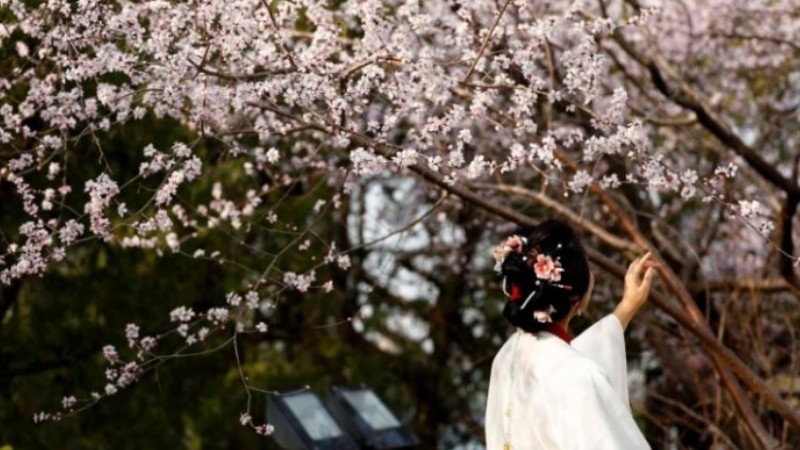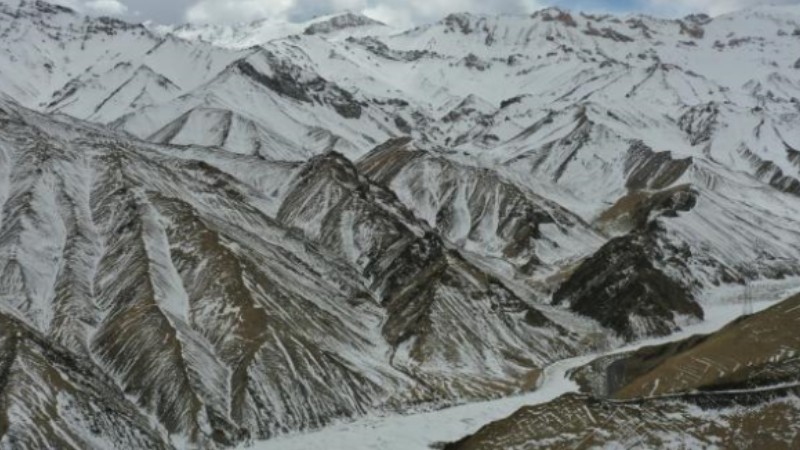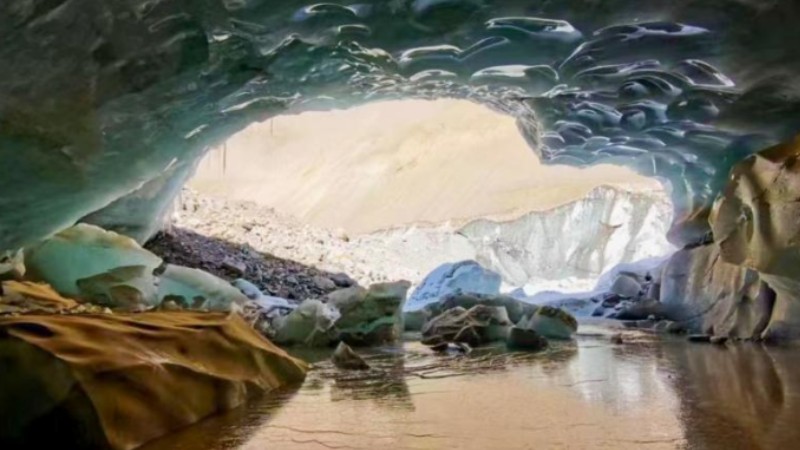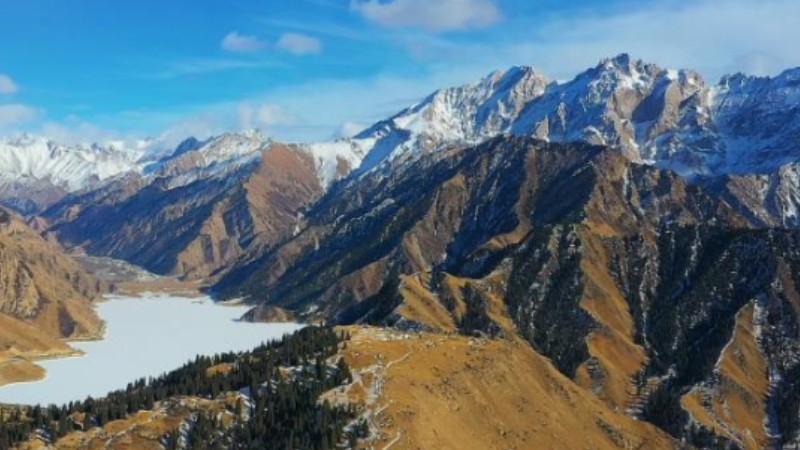UN watchdog chief's visit raises hopes of reviving Iran nuclear deal
TEHRAN, March 9 (Xinhua) -- The visit to Iran last week by the UN nuclear watchdog chief following weeks of high tension between the two sides seemed to have witnessed the calm after the storm, reflecting a bilateral willingness to resolve issues and raising hopes of reviving a 2015 nuclear deal, Iranian analysts said.
Director General of the International Atomic Energy Agency (IAEA) Rafael Grossi visited Tehran, the capital of Iran, during March 3-4 and discussed issues of contention with senior Iranian officials.
The outcome of the trip was a joint statement by the two sides, the main features of which were their pledge to continue interactions "in a spirit of collaboration" and Iran's greater openness to the agency's inspections.
"NEW CHAPTER OPENED"
"A new chapter was opened in the cooperation between Iran and the agency," Iranian Foreign Ministry spokesman Nasser Kanaani said on Monday, two days after Grossi finished his visit.
Describing Grossi's visit as part of the efforts to pave the way for all parties' return to the nuclear deal, formally known as the Joint Comprehensive Plan of Action (JCPOA), Kanaani expressed hope that the "good agreements" reached during Grossi's trip would prepare the ground for the resolution of technical differences.
The visit came amid the differences between Iran and the IAEA that had peaked in previous weeks, mainly over claims that Iran "enriched uranium to a level close to 84 percent" and its "noncooperation" with the agency with regard to the "three undeclared sites" where "traces of uranium" had allegedly been found. Iran rejected the first claim as "inaccurate" and the second as "baseless."
It is worth noting that Grossi's visit came after months of criticisms by the agency of "Iran's lack of cooperation" and a few days ahead of a meeting of the IAEA Board of Governors, where in November last year, a resolution proposed by the United States, Britain, France and Germany had been passed calling on Iran to collaborate with the agency's investigators regarding "uranium traces," all said to be among the outstanding issues causing a standstill in the nuclear negotiations that started in Vienna in April 2021.
Despite some skepticism voiced domestically of the trip and the intentions behind it, the visit drew upbeat responses from Iranian officials, media, analysts and especially the country's forex market where the national currency, the rial, started gaining against the U.S. dollar after days of unprecedented depreciation.
RESOLVING DIFFERENCES
In remarks to the official news agency IRNA, Jalil Rahimi Jahanabadi, a member of the Iranian Parliament's National Security and Foreign Policy Committee, said Grossi's visit was mainly a "political" one aimed at alleviating the agency's concerns about Iran's nuclear activities and reassure the West that Iran is not developing a nuclear weapon.
He expressed optimism that the visit would prepare the ground for the closure of the case about Iran's nuclear activities for good.
Remarks by Grossi on the sidelines of the IAEA Board of Governors meeting on Monday seemed to support the optimism, as he said no "production" or "accumulation" of highly enriched uranium has been found by the agency's inspectors in Iran.
When the meeting of the IAEA Board of Governors came to an end on Wednesday, no anti-Iran resolution was issued despite the hue and cry by the E3 group of France, Britain and Germany as well as Israel over the past weeks.
During his meeting with Iranian President Ebrahim Raisi in Tehran on Saturday, Grossi described as "very constructive and positive" his meetings with Iranian officials during the visit, saying they will prepare the ground favorably for future interaction and expanded cooperation between the two sides.
At a joint press conference earlier in the day with President of the Atomic Energy Organization of Iran (AEOI) Mohammad Eslami, Grossi stressed that the cooperation between the agency and Iran and the "good agreement" the two sides were expected to reach would be of contribution to the JCPOA's revival.
RESUMING NEGOTIATIONS?
Reza Nasri, an international affairs analyst, told the semi-official ILNA news agency that the differences between Iran and IAEA were cited as the main obstacle to the continuation of the negotiations.
At present, Iran has proved that it is not the side to blame for the failure to resume the nuclear talks, he said, noting Tehran can use the "technical agreements" with the agency as important political leverage in the process of reviving the JCPOA, waiting for the other parties to keep their side of the bargain.
On the possibility of Grossi's visit resulting in the JCPOA's revival, Javid Qorban-Oghli, former Iranian ambassador to South Africa, told Iranian Ham-Mihan newspaper that unless Iran and the IAEA resolve their differences, it will not be possible to restore the nuclear agreement.
"I do not seek to say (the visit) will lead to the JCPOA's revival, but when Grossi points to such a possibility, it is a positive sign," the former diplomat said.
An analysis by the official Iranian newspaper Jomhouri-e Eslami (Islamic Republic) was another upbeat voice heard following Grossi's visit, as it said what took place during the IAEA chief's trip has increased the likelihood of the JCPOA's revival.
"It appears that the recent agreements reached between AEOI and IAEA would be enough to help resolve the disputes between the two sides for the time being, ... thus smoothing the path for the resumption of the nuclear talks," the newspaper said.
Photos
Related Stories
- Iranian president urges IAEA to adopt "professional" approach to Iranian nuclear issue
- Iran, IAEA to enhance cooperation to resolve safeguards issues
- Iran blames U.S. "wrong policy" for nuke talks impasse
- Chinese speech contest in Iran highlights cultural similarities
- Iran slaps "retaliatory" sanctions on EU, British individuals, entities
Copyright © 2023 People's Daily Online. All Rights Reserved.









